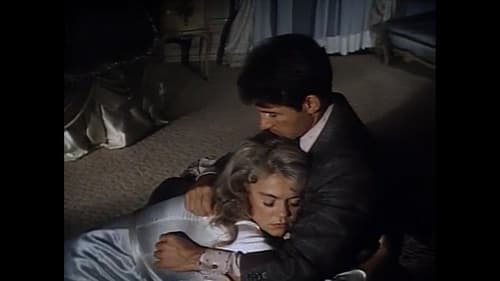
Writer
Adventures of a train robber and his teenaged female partner, on the run from the law in the days of the Wild West. Suitable for younger audiences.

Director
Adventures of a train robber and his teenaged female partner, on the run from the law in the days of the Wild West. Suitable for younger audiences.

Story
A fictionalized drama about the first women to enter the U.S. Military Academy in 1976 and the reactions they faced.

Screenplay
The story of Virginia Hill, a former prostitute who was the girlfriend of '40s killer and gangster Bugsy Siegel.

Producer
Written, directed, and self-financed by Juleen Compton, The Plastic Dome of Norma Jean is the story of a clairvoyant teenage girl, Norma Jean (Sharon Henesy), taken advantage of by a boy band, fashioned after The Beatles, determined to exploit the young woman's powers as part of a hoax revival.

Writer
Written, directed, and self-financed by Juleen Compton, The Plastic Dome of Norma Jean is the story of a clairvoyant teenage girl, Norma Jean (Sharon Henesy), taken advantage of by a boy band, fashioned after The Beatles, determined to exploit the young woman's powers as part of a hoax revival.

Director
Written, directed, and self-financed by Juleen Compton, The Plastic Dome of Norma Jean is the story of a clairvoyant teenage girl, Norma Jean (Sharon Henesy), taken advantage of by a boy band, fashioned after The Beatles, determined to exploit the young woman's powers as part of a hoax revival.

Producer
Compton's first feature was the autobiographical Stranded, which she wrote, directed, starred in, self-financed and distributed. Released in 1965, the film shares the cinematic experimentation and stylish, youth-centric rebellion of the French New Wave made even more radical by its progressive portrayals of female independence and sexuality, beatnik culture, and discussions of homosexuality. Stranded follows Raina, a young American woman (played by Compton), traveling through Greece with her American lover (Gary Collins), and her French, gay, best friend (Gian Pietro Calasso). Raina partakes in several love affairs rejecting marriage offers for no other reason than she likes her life the way it is. Made just prior to the arrival of second wave feminism, Compton, as writer-director, never judges her on-screen alter-ego the way similar female characters were frequently punished in other films during this era by stigmatizing female sexuality.

Raina
Compton's first feature was the autobiographical Stranded, which she wrote, directed, starred in, self-financed and distributed. Released in 1965, the film shares the cinematic experimentation and stylish, youth-centric rebellion of the French New Wave made even more radical by its progressive portrayals of female independence and sexuality, beatnik culture, and discussions of homosexuality. Stranded follows Raina, a young American woman (played by Compton), traveling through Greece with her American lover (Gary Collins), and her French, gay, best friend (Gian Pietro Calasso). Raina partakes in several love affairs rejecting marriage offers for no other reason than she likes her life the way it is. Made just prior to the arrival of second wave feminism, Compton, as writer-director, never judges her on-screen alter-ego the way similar female characters were frequently punished in other films during this era by stigmatizing female sexuality.

Writer
Compton's first feature was the autobiographical Stranded, which she wrote, directed, starred in, self-financed and distributed. Released in 1965, the film shares the cinematic experimentation and stylish, youth-centric rebellion of the French New Wave made even more radical by its progressive portrayals of female independence and sexuality, beatnik culture, and discussions of homosexuality. Stranded follows Raina, a young American woman (played by Compton), traveling through Greece with her American lover (Gary Collins), and her French, gay, best friend (Gian Pietro Calasso). Raina partakes in several love affairs rejecting marriage offers for no other reason than she likes her life the way it is. Made just prior to the arrival of second wave feminism, Compton, as writer-director, never judges her on-screen alter-ego the way similar female characters were frequently punished in other films during this era by stigmatizing female sexuality.

Director
Compton's first feature was the autobiographical Stranded, which she wrote, directed, starred in, self-financed and distributed. Released in 1965, the film shares the cinematic experimentation and stylish, youth-centric rebellion of the French New Wave made even more radical by its progressive portrayals of female independence and sexuality, beatnik culture, and discussions of homosexuality. Stranded follows Raina, a young American woman (played by Compton), traveling through Greece with her American lover (Gary Collins), and her French, gay, best friend (Gian Pietro Calasso). Raina partakes in several love affairs rejecting marriage offers for no other reason than she likes her life the way it is. Made just prior to the arrival of second wave feminism, Compton, as writer-director, never judges her on-screen alter-ego the way similar female characters were frequently punished in other films during this era by stigmatizing female sexuality.










